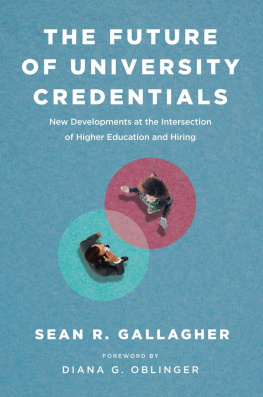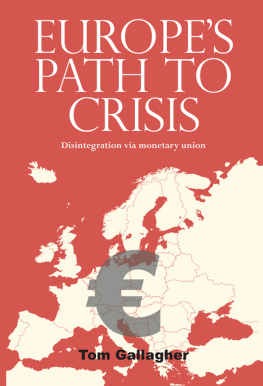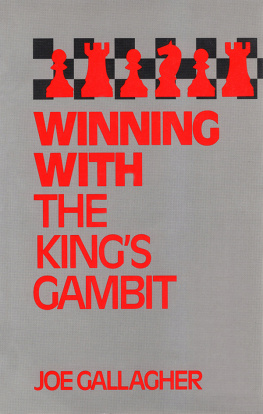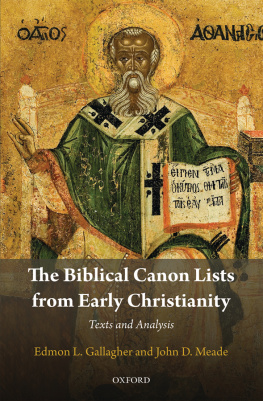Sean R. Gallagher - The Future of University Credentials
Here you can read online Sean R. Gallagher - The Future of University Credentials full text of the book (entire story) in english for free. Download pdf and epub, get meaning, cover and reviews about this ebook. year: 2020, publisher: Harvard Education Press, genre: Romance novel. Description of the work, (preface) as well as reviews are available. Best literature library LitArk.com created for fans of good reading and offers a wide selection of genres:
Romance novel
Science fiction
Adventure
Detective
Science
History
Home and family
Prose
Art
Politics
Computer
Non-fiction
Religion
Business
Children
Humor
Choose a favorite category and find really read worthwhile books. Enjoy immersion in the world of imagination, feel the emotions of the characters or learn something new for yourself, make an fascinating discovery.
- Book:The Future of University Credentials
- Author:
- Publisher:Harvard Education Press
- Genre:
- Year:2020
- Rating:5 / 5
- Favourites:Add to favourites
- Your mark:
- 100
- 1
- 2
- 3
- 4
- 5
The Future of University Credentials: summary, description and annotation
We offer to read an annotation, description, summary or preface (depends on what the author of the book "The Future of University Credentials" wrote himself). If you haven't found the necessary information about the book — write in the comments, we will try to find it.
The Future of University Credentials — read online for free the complete book (whole text) full work
Below is the text of the book, divided by pages. System saving the place of the last page read, allows you to conveniently read the book "The Future of University Credentials" online for free, without having to search again every time where you left off. Put a bookmark, and you can go to the page where you finished reading at any time.
Font size:
Interval:
Bookmark:
The Future of University Credentials
The Future of University Credentials
New Developments at the Intersection of Higher Education and Hiring
SEAN R. GALLAGHER
Harvard Education Press
Cambridge, Massachusetts
Copyright 2016 by the President and Fellows of Harvard College
All rights reserved. No part of this publication may be reproduced or transmitted in any form or by any means, electronic or mechanical, including photocopy, recording, or any information storage and retrieval systems, without permission in writing from the publisher.
Library of Congress Cataloging-in-Publication Data
Names: Gallagher, Sean R., author.
Title: The future of university credentials : new developments at the intersection of higher education and hiring / Sean R. Gallagher.
Description: Cambridge, Massachusetts : Harvard Education Press, [2016] | Includes bibliographical references and index.
Identifiers: LCCN 2016016048| ISBN 9781612509679 (pbk.) | ISBN 9781612509686 (library edition) | Mobi ISBN 978-1-61250-970-9
Subjects: LCSH: Labor supplyEffect of education on. | Education, HigherEvaluation. | Universities and collegesEvaluation. | Degrees, AcademicEvaluation.
Classification: LCC LB2331.62.G36 2016 | DDC 378.2dc23
LC record available at https://lccn.loc.gov/2016016048
Published by Harvard Education Press,
an imprint of the Harvard Education Publishing Group
Harvard Education Press
8 Story Street
Cambridge, MA 02138
Cover Design: Ciano Design
Cover Images: iStock.com/4x6
The typefaces used in this book are Frutiger and ITC Legacy Serif
CONTENTS
by Diana G. Oblinger
FOREWORD
Education can be an end in itself. Knowledge, culture, civic engagement, and personal growth are all valuable outcomes. But for most learners and their families, education is also a means to an endgreater professional, personal, and economic opportunity. Typically, a persons first job will build on knowledge and skills gained in college while also requiring new knowledge and skill development. Those capabilities, in turn, will lead to the next opportunity.
Higher education plays a crucial role in this process, contributing to an ever-evolving continuum of people, skills, problems to be solved, interactions, and ongoing learning. Sean Gallaghers important new book focuses on a crucial part of this continuum: the rapidly evolving intersection of higher education and hiring. As Gallagher notes, while the degree and a transcript have long been the gold standard in college and university credentialingand the best insurance for a good job and growing wagesnew options are emerging. Gallagher provides a fascinating and indispensable guide to that evolving sector.
One of the critical catalysts for change in the economy, the labor market, and higher education has been information technology (IT). Recall The World Is Flat? IT enabled globalization. Boundaries have become more porous; financial transactions and communication instantaneous; and traditional notions of speed and scale were upended. And although e-mail, online learning, and social media have not replaced campuses, courses, or faculty, these IT innovations have challenged our assumptions about information, hierarchies, and empowerment. Without a doubt, IT has changed work and the labor market. Routine jobs have been automated; robots and algorithms have displaced workers. While even highly skilled jobs can be displaced by advanced computational power, growth of the hybrid job market (which includes positions that blend two or more skills such as analytics and marketing) is explosive.
As the world has changed around us, our notions of what it means to be educated have evolved as well. Intellectual skills are a must in todays world, but so too are interpersonal skills. A complex world requires complex skills. Historically a college degree was the best proxy for those complex skills. But todays jobs require the meshing of multiple disciplines and skills, with frequent upskilling. Organizations are less hierarchical, with the need for rapid forming, and dissolving, of distributed teams. Fluidity rather than stability characterizes the environment. Employers find little time to grow talentthey need to hire the right match of skills, competencies, and attitudes to remain competitive. Because an organizations success depends on its people, the stakes are high for employers to find the right match in job prospects. Increasingly they are adopting sophisticated tools such as predictive analytics to improve their selections based on competency matching and quality of hire analysis. And as we achieve greater clarity between business needs and workforce capabilities, our notions of competencies and credentialing shift.
In this environment, it is not surprising that educational options have also grown. Competencies, certificates, boot camps, and badges augment traditional options. Do-it-yourself learning opportunities are readily available (for instance, Google, Khan Academy, Lynda.com), making it more convenient to keep up with rapid skill changes. Both within and outside of higher education, guidance is available for those seeking additional skills. Stackable credentials, degree pathways, course selection tools, and new services such as Training Finder seek to offer learners more certain pathways to credentials and opportunities.
Verifiable credentials have value in the marketplace. Competencies, certificates, diplomas, and informal learning are being integrated into digital identities. Online talent platforms, such as LinkedIn, can scan these credentials and match candidates with employers, as well as provide feedback to institutions on their alumni and educational programs. Online talent platforms are becoming the operating system of this interconnected ecology.
Common competencies (such as problem solving) may be critical in multiple industries (for example, health care, IT, advanced manufacturing, and so on). These competencies form the basis of the many stackable and flexible job pathways. As common terminology and taxonomies emerge, a new language is being developed that will speed the adoption and use of competencies. Employers, students, and educators are interested in a transparent system that allows each to understand the competencies needed, how they are assessed, and a marketplace that enables multiple paths to career success.
In some ways, much of this is not new. Communication skills, problem solving, and critical thinking have long been goals of education. Employers have not been oblivious to their desirability, either. For example, competency-based education has been available for decades, and many colleges and universities offer hundreds of credentials. Two shifts are significant, however. One is the economic implication of a strong link between hiring and higher education. The other is a market dynamic.
The wage premium of a college education has been persistent and significant, even as the number of college graduates has grown. However, there is increasing skepticism about the cost and value of a college education in light of reports of unemployment, underemployment, and high student loan debt. At the same time, employers are finding it difficult to pinpoint the employees they need, hampering their growth and profitability, which in turn impacts individual wages, tax receipts, and community vitality.
Markets need information to work. One significant impact of IT is the sharing of information. Access to information, whether about the price of steel or the likely salary in marketing versus medicine, affects behavior. Clearly business, industry, and the workplace are markets. But increasingly, higher education is perceived as a market; the currency might be applicants, graduates, or those deemed most likely to succeed. Job seekers, including those with college credentials, are in a marketplace that seeks to match talent with opportunities.
Next pageFont size:
Interval:
Bookmark:
Similar books «The Future of University Credentials»
Look at similar books to The Future of University Credentials. We have selected literature similar in name and meaning in the hope of providing readers with more options to find new, interesting, not yet read works.
Discussion, reviews of the book The Future of University Credentials and just readers' own opinions. Leave your comments, write what you think about the work, its meaning or the main characters. Specify what exactly you liked and what you didn't like, and why you think so.













